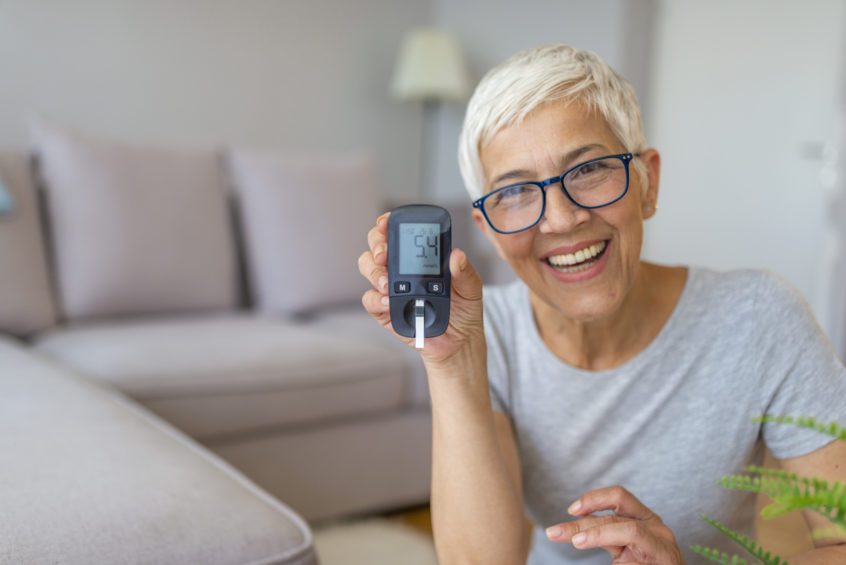According to the American Diabetes Association, two of America’s most common health problems are diabetes and hearing loss. More than 34 million people in the U.S. have diabetes, and an estimated 34.5 million have some type of hearing loss.
And, there may be some overlap between these two groups. Research has found that hearing loss is twice as common in people with diabetes as it is in those who don’t have the disease. Also, of the 88 million adults in the U.S. who have prediabetes, the rate of hearing loss is 30 percent higher than in those with normal blood glucose.
Though there does appear to be a connection between the two conditions, currently, we haven’t been able to fully confirm how the two are connected. One theory is that the high blood glucose levels associated with diabetes cause damage to the small blood vessels in the inner ear, similar to the way in which diabetes can damage the eyes and the kidneys. But more research needs to be done to discover why people with diabetes have a higher rate of hearing loss.
Hearing loss typically happens slowly, and often can be difficult for the individual to notice. Family and friends may actually be the first ones to spot the problem. Here are five signs of hearing loss you should be aware of, especially if you have diabetes or prediabetes.
1. You feel like people are always muttering or mumbling.
Do you feel like everyone around you is mumbling or talking too fast? Are you missing words or even full sentences because you can’t make out every syllable your conversation partner is saying? An early sign of hearing loss is when you have problems distinguishing between consonants, p versus b or t. If this is happening to you more often than in the past and with many different people, it may be a sign of hearing loss.
2. You turn the volume on your TV up louder than usual.
Do you turn the volume on your TV up louder and louder, or maybe it’s the radio? Do others walk into the room and ask why the TV is so loud? This is often one of the first things people notice if they are having problems hearing. If the volume on your TV keeps creeping up, or your spouse complains they can hear the TV in the other room, you may want to have your hearing checked.
3. You can’t hear conversation well in background noise.
Do you find that background noises are always drowning out the important sounds in your life? Or does talking to others in groups or restaurants cause you to strain to hear? Many people have more problems than usual hearing in background noise, which can be an early sign you should get your hearing checked by a professional.
4. You have problems hearing over the phone.
Have you noticed that it’s becoming harder and harder to understand your family and friends on the phone? That may be because you can’t read lips or the visual cues that body language provides. If you keep asking the person you’re talking with to repeat him or herself, that could be a sign you need to get your hearing checked by a doctoral-level audiologist.
5. You avoid social situations.
Lots of people actually begin to withdraw from family and social activities as their hearing loss gets worse. This may be because you’re always asking people to repeat themselves, or because you find it hard to follow the conversation if more than one person is talking at a time. Or, it can be embarrassing if you misunderstand someone and respond inappropriately. Get your hearing checked so that you don’t isolate yourself and miss out on favorite activities with family and friends.
Thanks to this stronger evidence of a connection between diabetes and hearing loss, the Standards of Medical Care from the American Diabetes Association recommend assessment and treatment for common diabetes-associated conditions, including hearing impairment. The standards cite a National Health and Nutrition Examination Survey analysis that showed hearing impairment is about twice as great in people with diabetes compared to those without, after adjusting for age and other risk factors for hearing impairment.
More research is needed to fully understand the link between diabetes and hearing loss. But if you have diabetes, are having difficulties hearing, or would like a baseline of your hearing status, schedule an appointment with a doctoral-level audiologist for a comprehensive hearing evaluation to monitor for potential changes in hearing.



